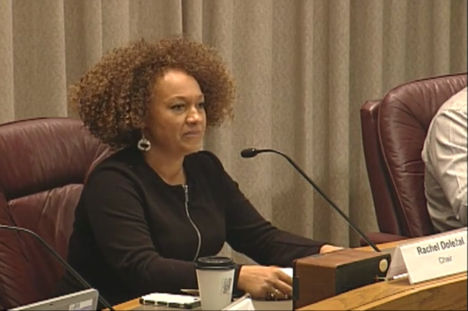It’s not just black and white

Rachel Dolezal, formerly of the NAACP
Race- a prevalent issue in the media for decades, causes tensions and topics for debate. However, an unusual question has been raised and has sparked controversy in these past months: can a person be transracial?
Most people are unaware of what the term means. Of the 500 surveyed students at White Station, about a half had never heard of “transracial” before. Of the other half that had heard the term, a large portion was unsure of what the term actually means.
According to Merriam-Webster, the term transracial can be defined as “involving, encompassing, or extending across two or more races.” Generally, the phrase is applied to adoptions in which parents of one race adopt children from another race. But now it has another purpose.
Transracial has recently become controversial as it has become associated with Rachel Dolezal and her challenge of the original meaning. Dolezal is a former President of the Washington NAACP chapter and civil rights activist. She was pursuing her career as a black woman and leader and teaching Africana studies as a black woman and leader when people came to a realization: Rachel Dolezal is not black.
Dolezal was born a white female. However, as she grew older, she claims that she started to feel as though she was black. Psychologically, she believes that she is a black woman and has taken measures to alter her physical appearance by wearing certain hairstyles commonly associated with black women and tanning her skin to a darker complexion. When asked what race she considers herself, she states that she identifies as black.
With Dolezal’s story sensationalized in the media, it also raises the question of whether or not transracial should be considered an identity. Of the students surveyed at White Station, about 19 percent consider it a valid identity, while the vast majority do not.
“The term transracial is particularly upsetting to those who are transgender because it delegitimizes their issues, “ responded a student anonymously.
As transracial has become disputed in the news and on social media, it has drawn comparisons to transgender. Although both are types of identity, they can not be directly set side by side. They are separate matters with different meanings for those that are transitioning.
With transracial becoming a more relevant topic, the implications for the future have to be considered. Would a person be able to legally change their race on documents? Would colleges and universities grant minority scholarships to a transracial person? If more people decide to transition racially and transracial becomes commonplace, how will these issues be handled? All these questions must be considered before any decisions about the validity of the transracial identity can be made.
Your donation will support the student journalists of White Station High School. Your contribution will allow us to purchase equipment and cover our annual website hosting costs.





































